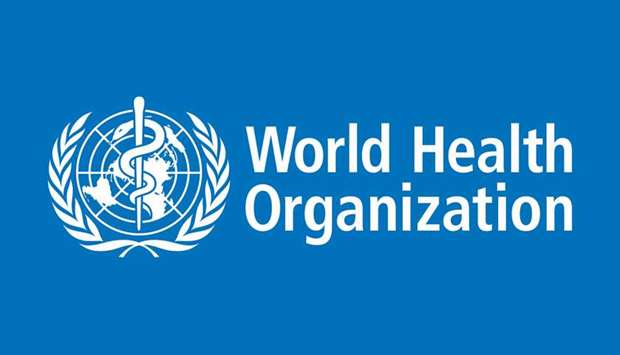The World Health Organisation (WHO)’s European office said yesterday that the heatwave baking Europe has caused over 1,700 deaths on the Iberian peninsula alone, calling for joint action to tackle climate change.
“Heat kills. Over the past decades, hundreds of thousands of people have died as a result of extreme heat during extended heatwaves, often with simultaneous wildfires,” WHO regional director for Europe Hans Kluge said in a statement. “This year, we have already witnessed more than 1,700 needless deaths in the present heatwave in Spain and Portugal alone.”
The regional director stressed that exposure to extreme heat “often exacerbates pre-existing health conditions” and noted that “individuals at either end of life’s spectrum – infants and children, and older people – are at particular risk”.
Responding to a query by AFP, WHO Europe explained that the figure is a preliminary estimate based on reports by national authorities, and that the toll had “already increased and will increase further over the coming days”.
The true number of deaths linked to the heatwave won’t be known for weeks, he said, adding “this scorching summer season is barely halfway done”.
“Ultimately, this week’s events point yet again to the desperate need for pan-European action to effectively tackle climate change,” Kluge said.
The regional head of the UN health body said that governments need to demonstrate will and leadership in implementing the Paris Agreement, which set the goal of limiting end-of-century warming to 2° Celsius (3.6° Fahrenheit) above pre-industrial levels – and preferably not beyond 1.5C.
He said that members of the WHO’s European region – 53 countries and regions including several in Central Asia – “have already demonstrated that they can work together on urgent threats to global health”, and that it was “time for us to do so again”.
In the US meanwhile, a relentless heatwave that has triggered health alerts for more than 100mn people is set to intensify this weekend, with temperatures and humidity forecast to surge to suffocating highs in many parts of the country.
The devastating heat highlights the direct threat climate change poses to even the wealthiest countries on the planet.
“So far this week, 60 daily high temperature records have been tied/broken as dangerous heat enveloped much of the nation,” the National Weather Service (NWS) said in a tweet on Thursday.
“More records are likely to be set over the next week,” it added.
Temperatures in large parts of the southwest United States have soared to over 38C (100F), topping 110F in some areas.
Similar levels were recorded across the US south, where humidity compounded the discomfort.
The NWS tweeted on Tuesday that 100mn people were under heat-related warnings and advisories, and said on Thursday that a “significant portion of the population” would remain under such warnings over the weekend.
Already high temperatures were set to rise further this weekend across the east coast of the United States, where high humidity could push “feels-like” temperatures well above 38C.
Washington and Philadelphia have both declared heat emergencies, and warned their residents to remain vigilant.
“Stay hydrated, limit sun exposure, and check on seniors, neighbours & pets,” Washington Mayor Muriel Bowser said on Twitter.
Philadelphia’s Department of Public Health warned in a statement that “during hot weather, NEVER leave children and pets unattended in vehicles under any circumstances”.
While the oppressive heat is expected to subside in the US south and east next week, a high pressure system over the Pacific northwest is expected to push temperatures 5-8C above normal levels.
Temperatures have also soared in Europe, setting a new all-time record in Britain, where the national weather service clocked above 40C in eastern England, surpassing the previous high set in 2019.
Unlike much of western Europe, most homes in the United States have air conditioning, helping to mitigate the heat wave’s health risks, but adding strain on the power grid in times of high usage.
In Texas, residents were asked last week to reduce their power consumption by not running major appliances from 2pm-8pm, as the southern state’s electric utility warned that low windspeeds threatened the grid reliability.
The City of New York on Thursday asked residents to use less energy by raising their air conditioning to 25C and unplugging appliances.
Scientists have warned that heatwaves like the ones being felt in the United States and Europe will become more frequent and rise in intensity due to global warming.



